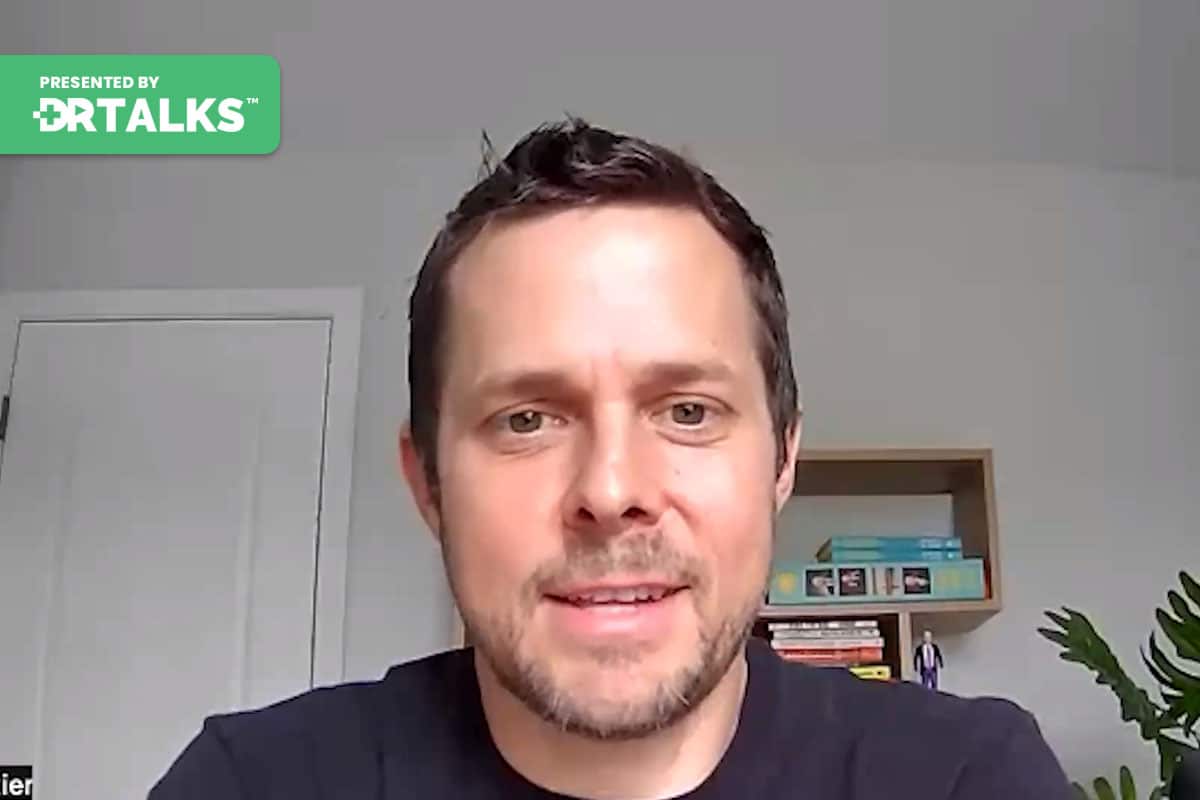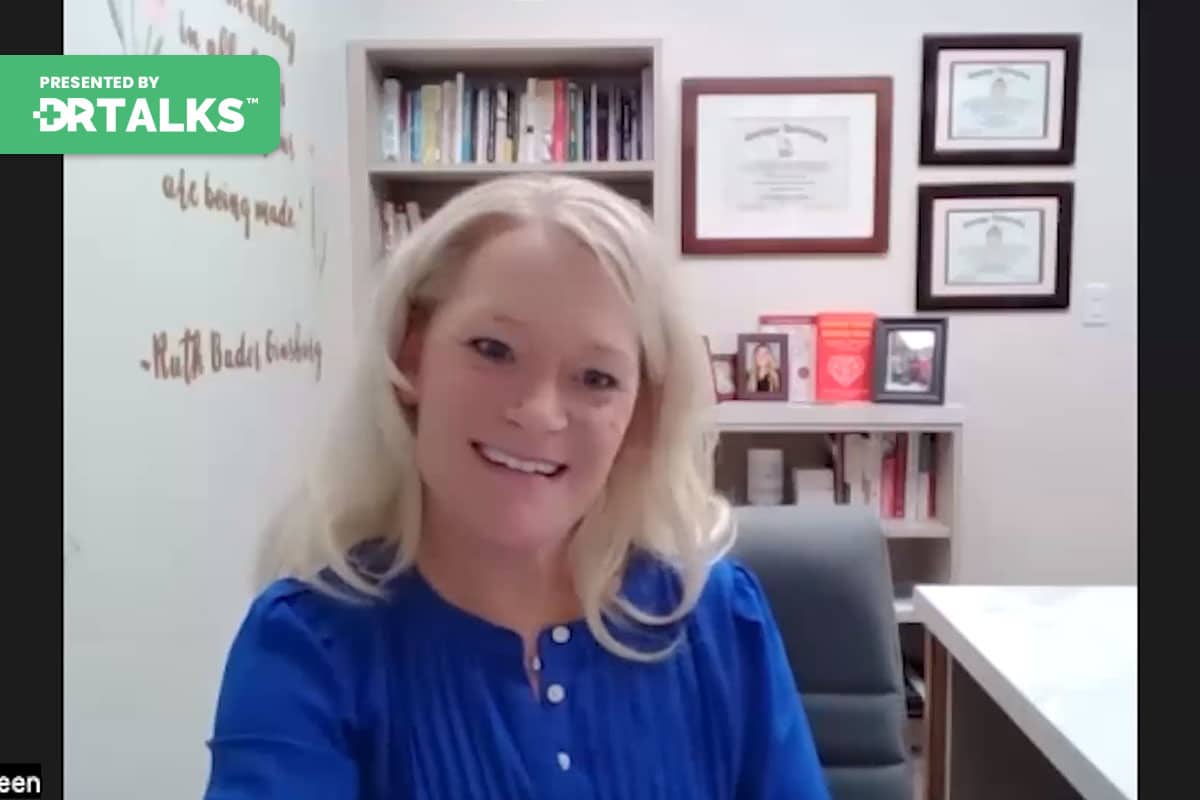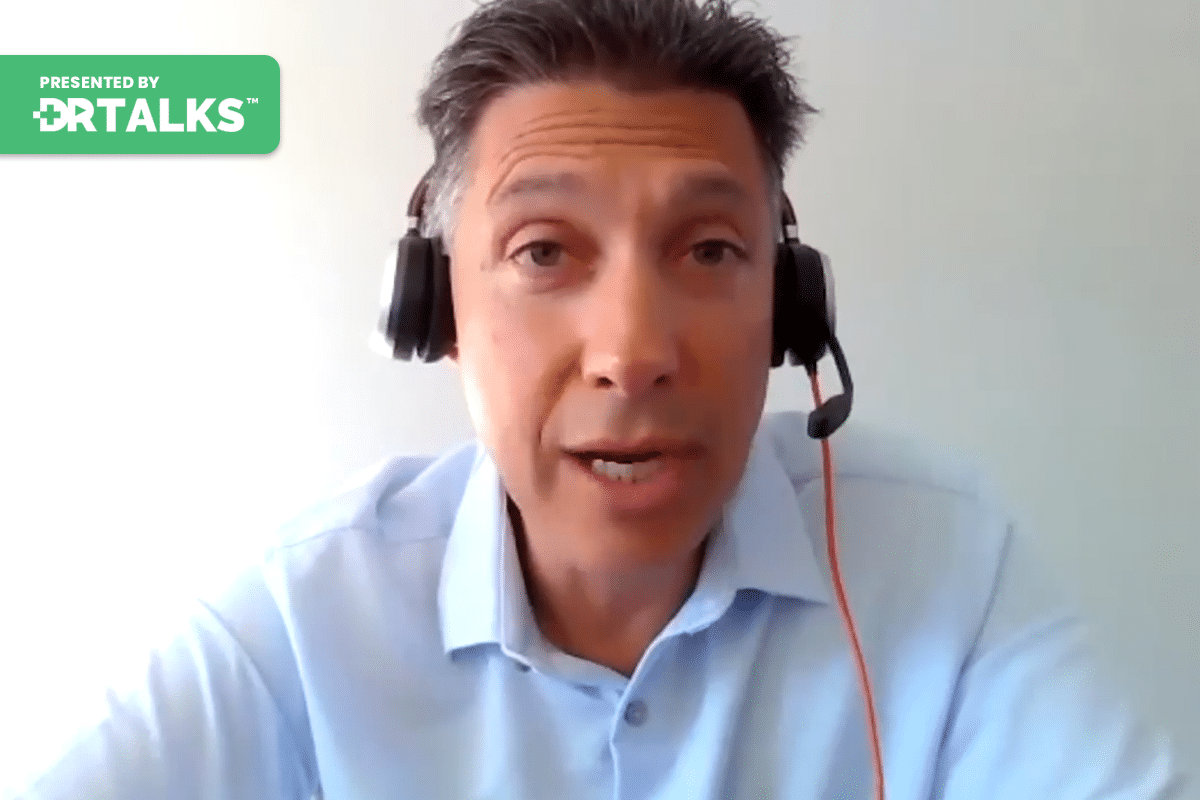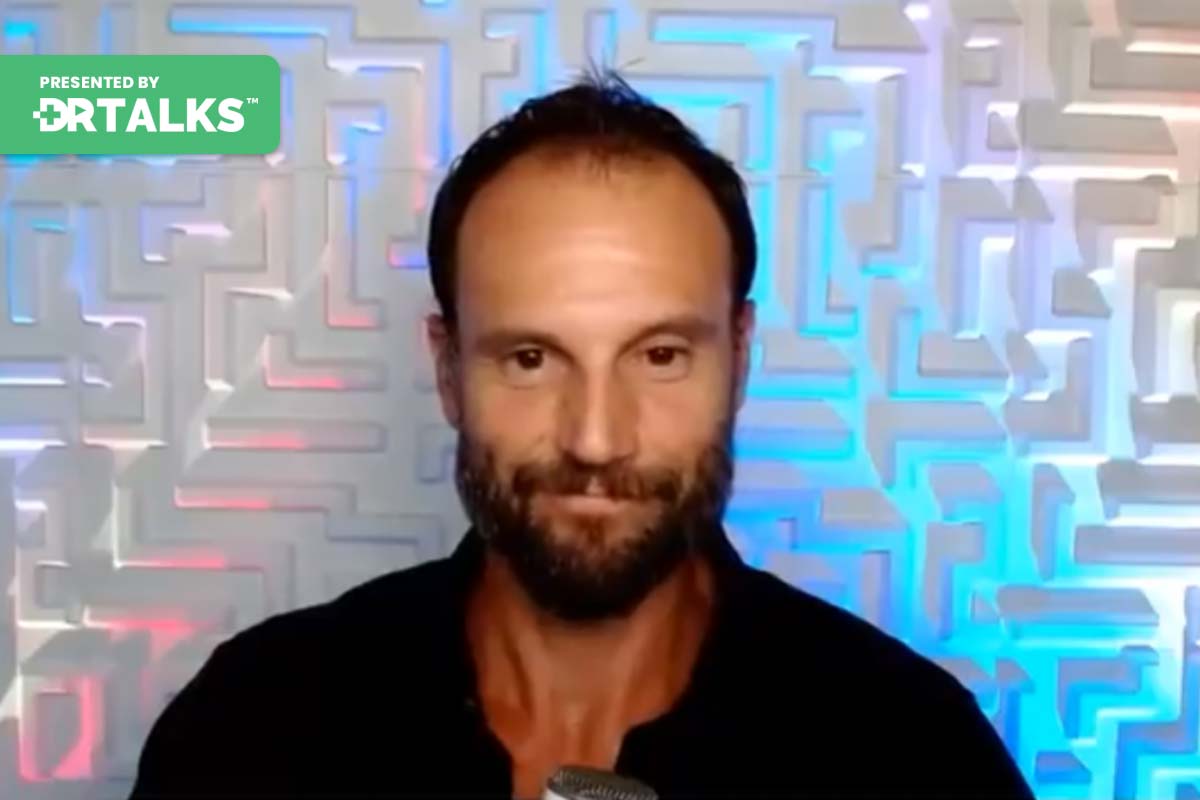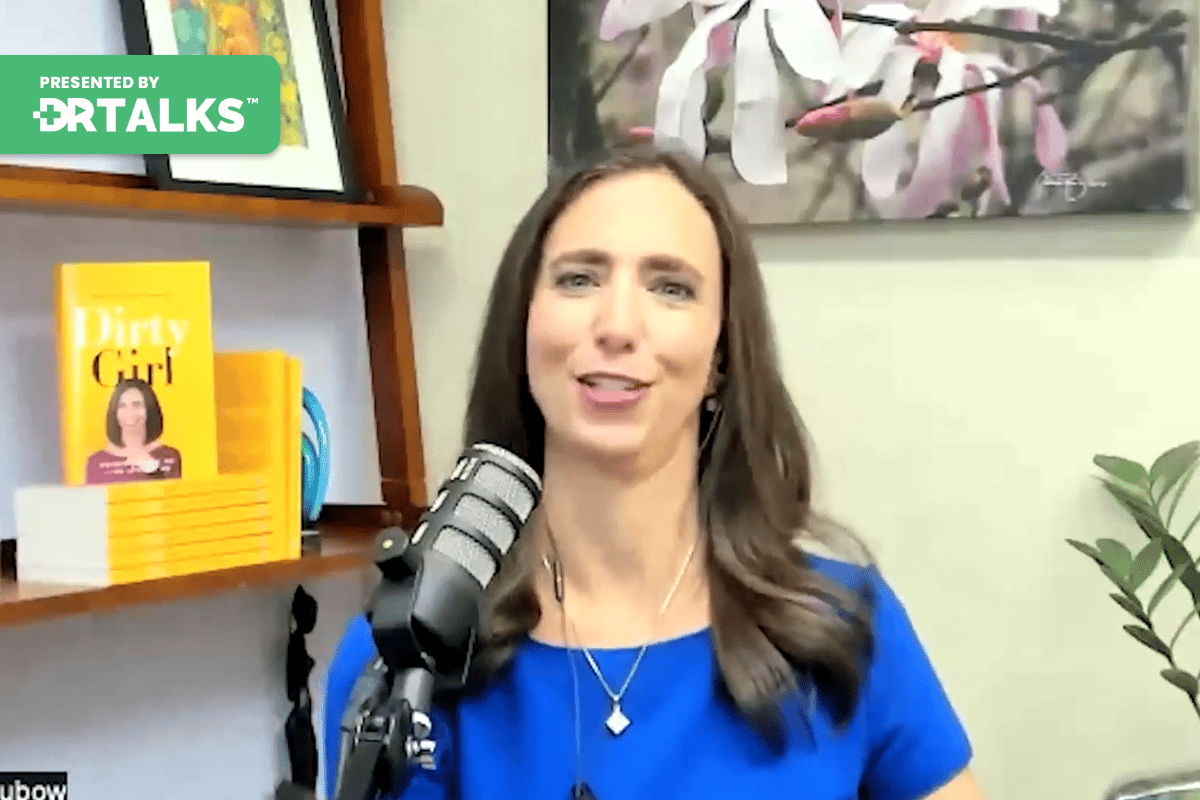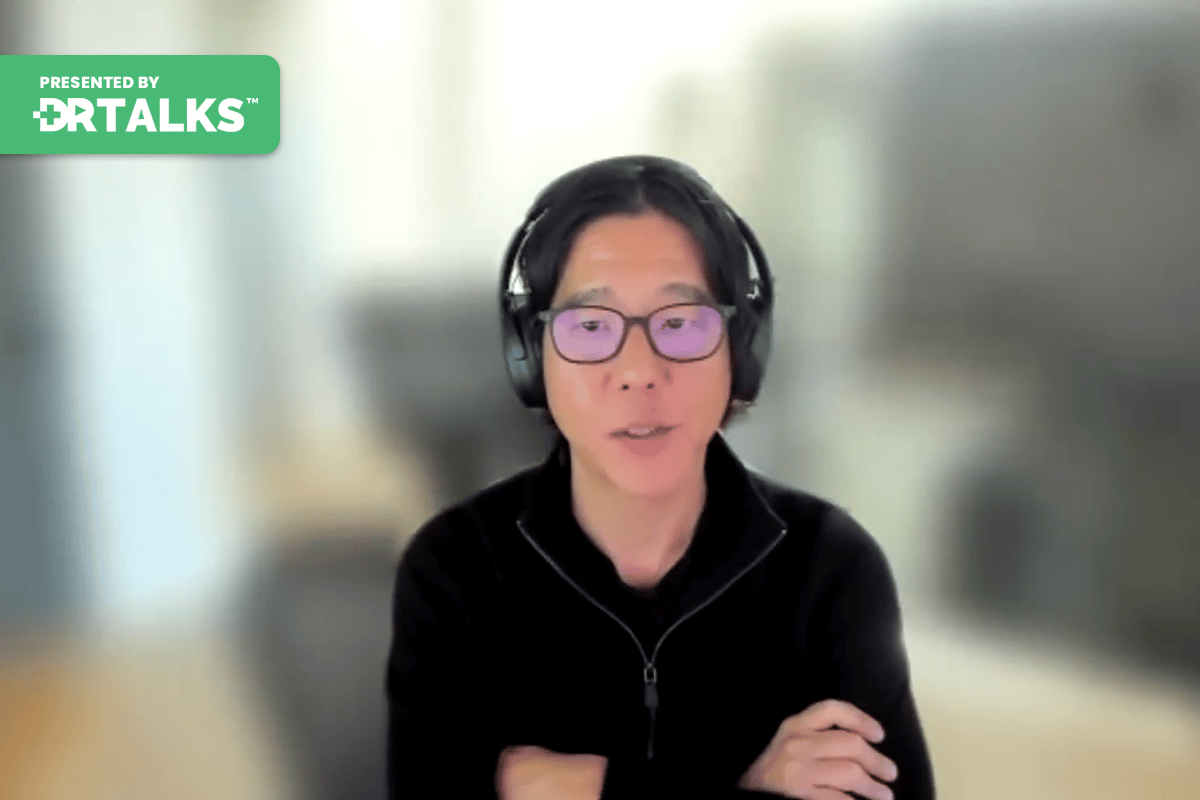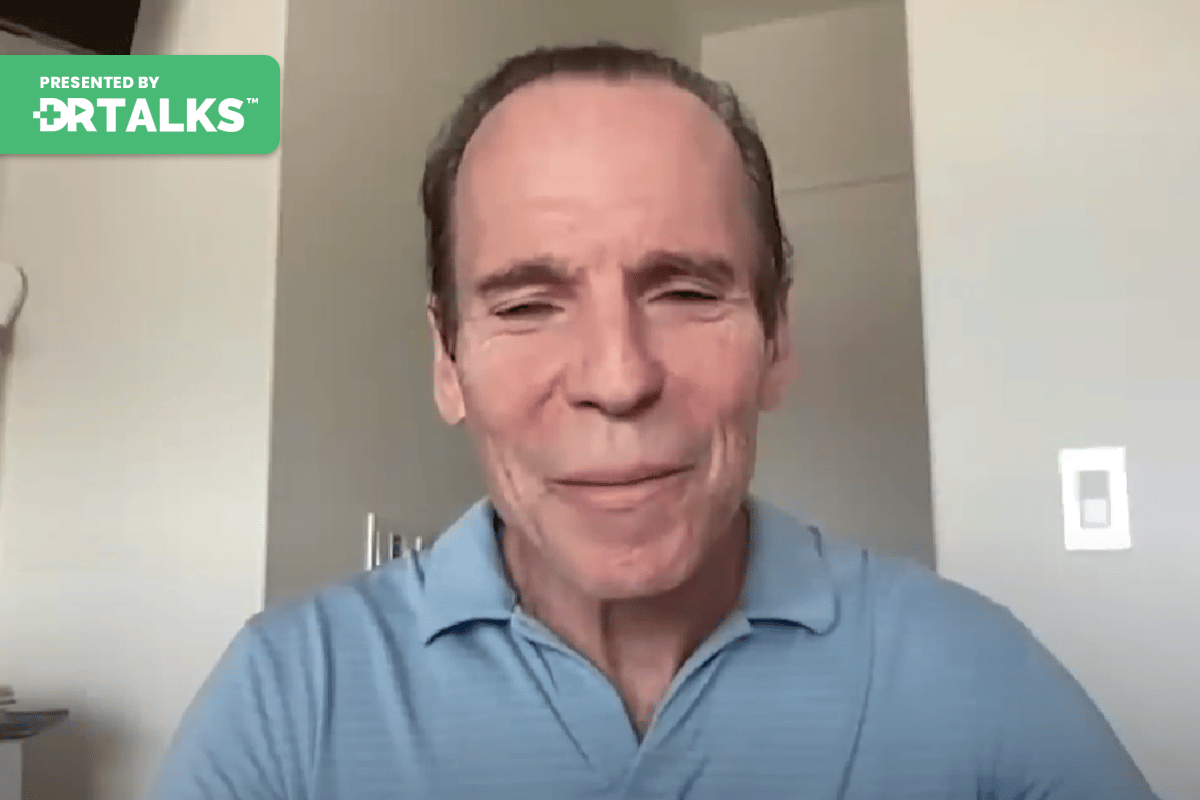Join the discussion below
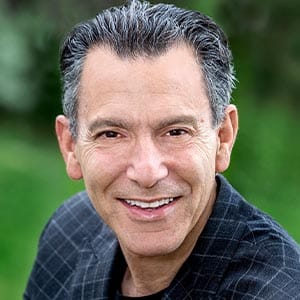
Joel Kahn, MD, FACC of Detroit, Michigan, is a practicing cardiologist, and a Clinical Professor of Medicine at Wayne State University School of Medicine. He graduated Summa Cum Laude from the University of Michigan Medical School. Known as “America’s Healthy Heart Doc”. Dr. Kahn has triple board certification in Internal... Read More
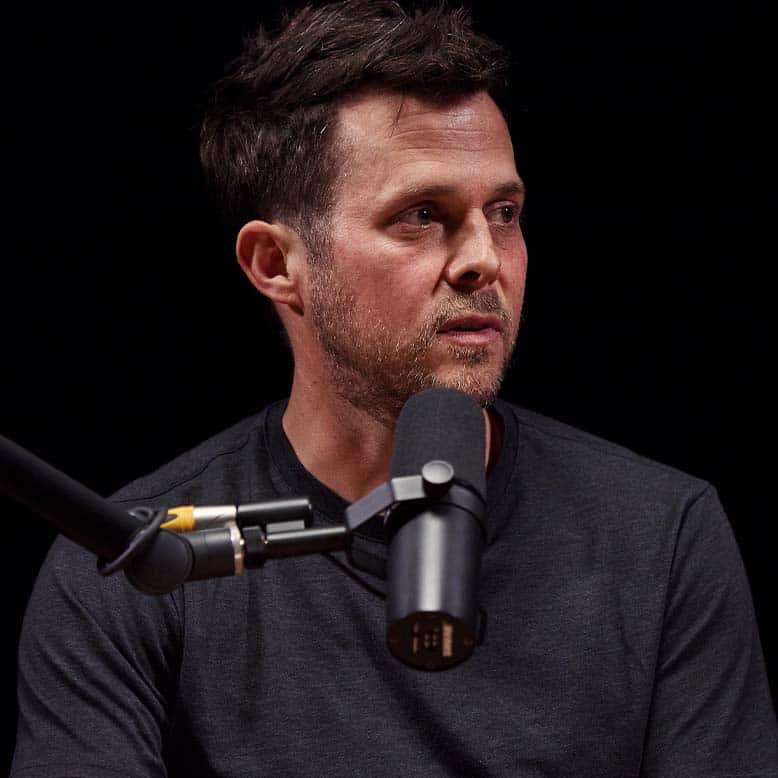
He is the founder and CEO of No Meat Athlete and author of The No Meat Athlete Cookbook. He is a marathoner and ultrarunner, and qualified for the Boston Marathon with the help of a plant-based diet. Matt is the host of the No Meat Athlete podcast. He lives in... Read More
- Diets of whole plants can improve athletic performance and recovery and are used worldwide.
- The number one concern, adequate protein, can easily be obtained from legumes, grains and greens.
- You can complement the plant based diet with a convenient multivitamin to boost a few key nutrient levels
Joel Kahn, MD, FACC
Everybody welcome back, this is reverse your heart disease naturally. Summit Dr. Joel Kahn and this is a great episode. We want practical information. I want to be healthy. I want to keep my heart healthy. I want to get my heart better and I know that exercise is gonna be part of it. But everybody I know that exercises eats chicken, eats fish, eats tilapia. I mean, how can you possibly have great cardio, great strength, great flexibility. So we brought the expert Matt Frazier. Good morning Matt, Good day. Good afternoon. Good evening.
Matthew Frazier
Good morning, Dr. Kahn! Good to talk to you. Always, always fun to work together and get to catch up.
Joel Kahn, MD, FACC
Yeah. And I kind of added the entire clock face realizing people will listen to this all over the world, were known all over the world, but to give you your proper bio and introduction which you deserve your you know, certainly most recently known as an author because you and go out to Robert Cheek wrote a great book, the plant based athlete, which was a New York times bestseller. Let’s just give it up.
I mean, a rare and absolutely wonderful achievement for a health book. I mean, it’s not a sex novel, so good for you. You know, a well known long distance athlete including qualifying for the Boston marathon, 50 milers, 100 milers. I’m not sure I’ve run 100 miles in my life and you’ve done it one event and you did it eating plants and you have for, I don’t know how long have you had the website podcast, YouTube? No. Meat athlete.
Matthew Frazier
I started knowing athlete in 2009. So it’s been, it’s been almost 14 years. I was vegetarian for the first two years of that and then then I saw the light went all the way vegan and that’s when I did my all my ultra running and everything
Joel Kahn, MD, FACC
Those dark days of only a couple of plant based of plant forward podcast. So thank you for being on the vanguard and thanks for sharing and you’re coming out from Charlotte, North Carolina and we’re discussing people are listening all over the world about how to check their heart, how to identify if they have heart disease, how to reverse it, How to never get it. And obviously whether you believe Jack Lalane, you know, exercise is king nutrition’s queen or you want to flip that or stick in sleep management somewhere.
But nonetheless, nutrition has always got to be in the top three. So how can you run five miles? 15 miles, 50 miles obviously with proper training and technique. How can you do it on plants? Let’s ask that big question. I need protein. I need protein. I’m thinking of a gorilla, which immediately answers the query. But what does a person like you or Robert Cheek who’s more into strength, bodybuilding and you’re more, I think it’s known as a cardio guy. I’m where are you getting your protein? How much do you need, how do you calculate? And what do you tell people listening right now when they’re going to the gym and they’re being beat with chicken breasts.
Matthew Frazier
Yeah, I mean great question. It’s honestly, as you know of course and probably a lot of people are listening is, it’s not, it’s not, it’s really not that complicated, It’s not that big of a challenge. And in fact, if you do it right and it doesn’t take that much effort to do it right. I think it can be a big advantage in a lot of ways. And that’s really what our book was all about. So I had the same fears when I first wanted to go vegetarian, I was training to qualify for the Boston marathon and I just decided I wanted to be vegetarian. This was like an ethical thing. I wasn’t motivated by health, I didn’t know that much about health benefits, but I decided I was going to try it and I thought it was going to become this big challenge and I didn’t know if it would kind of prevent me from ever qualifying for Boston. Which, you know, it was a big journey I was on. I was, had taken 90 minutes off my first marathon and I still had to take 10 minutes off, to get to Boston.
So I just didn’t know what would happen and I did, It went vegetarian like I said, not yet vegan and it just started working really well, I was, I was cranking out workouts, I was finding that I was running faster and more importantly I was able to recover faster from workouts and it didn’t, you know, nowadays I’ve talked to so many top athletes who choose plant based diets and I hear that from all of them is that the one of the reasons they stick with it is that they find they can recover faster eating this way than they could eating all the chicken breast, which is what I was eating before as well. So you know, it wasn’t, it wasn’t like that was top of mind thing, but I just started realizing that that I was able to train three or four times a week hard and in the past when I had done that sort of thing, it would appear to go well until a month or two into it and suddenly an injury would crop up well this time the injury didn’t crop up and and in hindsight I kind of realized that probably what’s happening is when you get injured, overuse injuries like runners often suffer.
It’s because you’re not coming back to your workout fully recovered. So with me, without having to like focus on recovery anymore, I was just choosing foods now, many more fresh, whole plant foods that are full of antioxidants and anti inflammatory compounds over, you know what had been just a chicken brown rice every now and then broccoli diet. So it worked really well and I honestly wasn’t all that focused on protein or anything for that matter. I just kind of was eating for the first time in my life, a whole lot of plant food. So that was, I really think a huge part of the reason for it. So nowadays having learned a lot more about it, I think about protein a little bit, I would say I try to get about a third of my body weight in pounds in grams of protein per day.
So if I weigh 150 pounds that be 50 g or so in a day, you know that that’s pretty much in line with most of the guidelines, you’ll see, you’ll see people say that athletes need slightly more than than an average person or that plant based eaters will need maybe 10% more than the other, the, the omnivorous of the everybody guidelines just because of the way that plant protein is digested. But you know, that’s not a not a large amount of differences anywhere in that range. If I can be in the 10-15% of my calories coming from protein, that’s good enough for me. And honestly, that’s the extent to which I focus on it, I certainly don’t measure my food or calculate those numbers every day. I spend a few days where I did pay attention to it and now I know what it feels like to get that amount of different macronutrients. So that’s about as stressful as it gets for me.
Joel Kahn, MD, FACC
The simple, low key and approachable for everybody listening eat colorful whole plants and as you said, about 30 year calories roughly eyeball estimate coming from higher protein plant sources of a banana has protein, A white potato has protein. But obviously we’re talking about those that are a little bit richer in protein as some of it. We’ll talk about those in a second if I
Matthew Frazier
Just to clarify, doctor can I think, I think it’s not, that’s a third of my body. Yeah, Like 10-15% of calories.
Joel Kahn, MD, FACC
10 or 15%. Okay, I did hear you say that. Yeah, so interesting. You know, very much in line with traditional nutrition advice from our government, nothing radical about it. And it’s interesting you haven’t really stepped up, let me ask you a couple of personal questions. You’re you’re currently, how young, how old?
Matthew Frazier
I am 41.
Joel Kahn, MD, FACC
Are you training for something now?
Matthew Frazier
I’m not training for any sort of race, anything right now. Now I am training with my son. He’s a really serious high level soccer player. He’s 12. And so I do his workout basically. I sort of have looked into like sports coaching for athletic for kids. I mean for athletes in general and put him on a plan. I said I was going to do it with you. So I do. I’m training as a high level of youth soccer player.
Joel Kahn, MD, FACC
Probably, you know, a wonderful athletic pursuit. You know, I’m just gonna ask you a couple more personal questions about how tall?
Matthew Frazier
I am 5’7 and weigh 145 or so.
Joel Kahn, MD, FACC
So how many calories? I mean now when you’re probably as active as anybody listening but not training for a 50 mile race, how many guesstimate eyeball do you think you’re getting calories in a day?
Matthew Frazier
It is a guest but I would guess like 3000. Does that sound reasonable?
Joel Kahn, MD, FACC
And yeah, it does. It’s probably you’re probably very active. And do you think that goes up when you’re setting a six month goal to train for a marathon or even a longer run?
Matthew Frazier
Yes, definitely does. Partly because I’m just more hungry throughout the day, but also because I then begin to intentionally eat around workouts and make sure that there’s everything in my body could need to to recover or you know, use during the workout. So I will definitely more calories then.
Joel Kahn, MD, FACC
I just want to return back to the protein question. I mean proteins are built of amino acids and amino acids, there’s 20 of them, some of which the human body makes and some we don’t make they’re called essential amino acids. I mean, is there anything different about the amino acids and chicken amino acids and chickpeas amino acids and brown rice that you know, build, you know, the calculated protein content of those three different foods or amino acids are amino acids in your understanding of, you know why a plant based sadly like you can do so well and maintain, you know, protein needs when you’re doing it from all plants.
Matthew Frazier
Yeah, I mean I actually don’t know much about the amino acid content of chicken. It’s been when I had that, I didn’t care about that sort of thing. But my understanding is that, you know, it’s harder to get all of the amino acids in anyone plant based food than it is to get them from, from meats. I know there are exceptions, there are some plant based complete proteins. But the whole idea of complete protein to me is, you know, and I think to most people nowadays is not really valid anymore that our body pulls, then we don’t need them in any one meal. So you know, I think there are certain ones loosen listen that are a little bit tougher to get on a plant based diet. They just don’t tend to pop up that much.
That’s the only reason that I take protein powder ever is just to get a little bit more those make it easier to get those amino acids. But yeah, I mean I don’t and I think honestly I don’t, we have a lot of science on this or know for sure maybe you would know better than I um you know people, there are people who kind of like when they go vegan or as athletes, they assuming you to get the branch chain amino acids in supplement form and replace everything. But to me like one of the benefits long term health wise, which honestly these days is much more my focus than short term goals. You know, I want to be healthy for the long term and to be able to see my kids turn out to be pro soccer players, that’s the goal now. So I tend to think that like large amounts of protein and large amounts of complete protein were one of the downsides of of animal eating an omnivorous diet. So I don’t want to put back in, you know, complete those proteins again and just getting basically replicate the protein I was getting on an animal based diet, I’d rather get somewhat less maybe not always complete proteins in platform and I think that’s going to be better for the long term.
Joel Kahn, MD, FACC
Okay. And I agree with you and it does turn out, or at least the science suggests there’s always little holes in the science that, you know, 20 amino acids can be obtained from animal flesh. 20 amino acids can be obtained from abroad plant diet with different, you know, vegetables, fruits, lagoons, the piece of the lentils and the whole grains and like you said, it doesn’t matter that you have to eat them all at once. I mean, one of the best foods in the plant based rainbow is organic soy products, tofu, Tempeh, edamame, because they do have all the amino acids that the human body doesn’t make in one serving of food, those incorporated in your diet with some regularity. You know, when you’re on an average day and also when you’re in training,
Matthew Frazier
Oh yeah, I’d say in a given week my family will eat tofu or tempeh um twice a week probably would be my guess. Yeah, we love it and I totally agree it’s a health food to me, not the soy, the soy fear that so many people have I think is very much misguided.
Joel Kahn, MD, FACC
Now we’re gonna talk in a minute about the fact that you sought out to develop a company which is really exploding to help support plant based health in general and plant based athletes. And one of the products the company makes is a delicious variety of powders that you can put in a smoothie in a blender, view yourself at baseline. Typically make smoothies. Are you up that a bit during your higher training levels for a performance event.
Matthew Frazier
During baseline at my age, I don’t, I mean have smoothies. I don’t put protein powder into it. For my son, he’s, he’s someone for me like when a lot of people ask about the challenges of a plant based diet, it’s not so much protein, it’s just calories in general, getting enough, especially if you’re trying to, you know, grow as a kid or if you’re trying to do a whole lot of miles, like, like I have in, you know, at certain periods and so any time I can just sort of get more calories I will during, during those periods. And to me, that’s like a good use for protein powder. So like, yes, it’s getting more protein, but it’s also just getting more calories. And so I’ll use that during heavy training periods. And right now, like I’m starting, I’ve been starting the strength training program with my son and for that, after workouts we will have some protein powder in a smoothie. But no, during like typical day to day life, it just has not been a big part of my life when I get older, I think it’s very likely will have a have a reason to put it in again because I do think people over 60-65 begin to have a slum with higher protein need than younger people do. But no, right now, it’s not, not a big priority for me.
Joel Kahn, MD, FACC
Exactly in line with the science is what you just said as your older, your protein requirements might need to be reset higher. And that’s when that delicious chocolate smoothie with some greens and berries, flaxseed might be a good idea, your co author on your New York times, Bestselling book again, the name, I have a right here. The plant based athlete is Robert Cheek and if people don’t know him, Robert is a big, big and body builder, muscle bound, different body shape than yours, different body shape than mine. And you’ve spent a lot of time with him. I mean has he modified his diet in a way that somebody listening right now says I’m a gym rat for weightlifting and I don’t think I can do that plant based. Maybe I can run like Matt, but I couldn’t have muscle like Robert. Or does he pretty much follow the same, you know, a variety of foods under the plant based rainbow and it works for his muscle bound body.
Matthew Frazier
Yeah, I mean, Robert and I somewhat differently, but these days, honestly he is very similar I think, than to what I do. I know in his early days, if you go look at his early books like vegan bodybuilding and fitness, he was trying to get huge, massive protein numbers per day. I don’t remember what the amounts were, but they were definitely into the hundreds of grams per day. And he was making tofu sandwiches or heat a whole block of tofu and 884 tofu hot dogs in a meal. So he was eating all kinds of protein in those early days. But over time he, his ideas evolved. I think he did the Cornell, T Colin Campbell nutrition certification thing, he did that and for a while he was eating in that like forks over knives. Campbells in way where it was like 10% protein. I mean almost like, I don’t know, I think, I think nowadays he’s like 70 15, 15 in terms of carbohydrate, protein fat, which is probably a little bit lower fat than I eat, but otherwise not that different. So yeah, it’s one of the interesting things that I have found just mostly it’s anecdotally just talking to different athletes over these 13 years that I’ve done this. Um It’s not to me like that across the board, there are like these obvious patterns that bodybuilders follow versus endurance diet. I would have thought that endurance diet would be much higher carbohydrate, much more energy available now. Protein or and and the bodybuilding or strength training diet would be much more protein for like muscle rebuilding.
You know, there’s some of that, but I think some of it is just sort of left over like from the way people used to think, I honestly think like just it seems like most plant-based athletes are in that 12-15% of protein range, and you know 65% of their calories from carbohydrates and it’s like it’s just not that different across sports, so I’m sure some people would disagree and some people of course who are in the body building where they’re like really meticulously everyone has their kind of way of doing things and they need to go through a period where they put on a bunch of muscle and in the process they add fat and then they go through this little cutting phase during the last few weeks before competition where they’ll try to remove the fat. So they definitely have. Their diet varies in, in those periods and I don’t know the specifics really of, exactly how they do it. But I would say overall, I’ve just kinda been surprised that diets between endurance athletes and strength or, or bodybuilding athletes, they’re really not not that different. I mean, not not in any noticeable way.
Joel Kahn, MD, FACC
Yeah. And the great thing about your book and Robert’s book, Plant based athlete is you did interview, I’m looking at the list probably about 60 well known plant based athletes from James Wilkes, the martial arts fighter, from game changers movie to rich roll, famous ultra athlete, Brendan Brazier, famous triathlete on and on. And you know, your book represents a variety of approaches to a completely plant based diet, but it works and it can tolerate a little variety, variety in it, but it’s colorful and delicious. I’m on your website while we’re talking looking at what I would call a buddha bowl of lentils and black beans and sweet potatoes and hummus and avocado and red peppers and some corn and I think you could probably power any athlete with that kind of diet.
Matthew Frazier
In the back of the book there’s a section called A Day in the Life and I think about 25 of those athletes tell you exactly what they eat from morning until night, including around workouts. And it’s really interesting to see like in generally what they have in common is they’re all eating whole plan, food’s a lot of their diet is that but some people, you know use the fake meat products, the beyond meats for their protein, even, you know, top level power left lifters like Nick Squires is a good example. Some people are like really meticulous about the planning and make sure they’re hitting exact macronutrient numbers, whereas other people are more like me, where they’re kind of like saying, I know roughly what I, you know where my diet ends me up because I have calculated the numbers before, but like now it is to just make sure that I get enough, you know, greens in my dad, like that’s the thing that tends not to show up, so I focused on making sure that I get a bunch of greens and raw vegetables when I can, but very, very loose approach and a lot of athletes have that.
So like it was kind of interesting to just see how many as much as I said, like there’s not these, there aren’t obvious patterns that like endurance athletes eat differently from strength athletes eat differently from power or body builders. There is a tremendous amount of variety within what athletes do and it’s idiosyncratic. It sort of depends on the person. But what’s amazing to see is how well a plant based diet can work in all these different forms for this many different athletes.
Joel Kahn, MD, FACC
Yeah. And the recipes which are provided the back your book by variety of athletes are absolutely delicious. And do you know, represented diversity. Let’s shift gears for a minute because you’re a real expert on the provocative, you can get a room full of vegan medical people, athletes, doctors and others and you know, argue hopefully kindly about whether B-12 supplementation, I think you would call it complementation is enough for whether you need more to support a whole food plant based diet. And let’s just talk you know, real and honest to the public and tell them there can be nutritional holes even in a brightly colored rainbow diet. And you might be smart to take a supplement. But you didn’t just write about it in blogs on your no meat athlete website, You’ve started a company and I think the U. R. L. is lovecompliment.com. So how does your multivitamin complement plus why don’t you call it a supplement? Why do you call it a compliment and what’s in it and why the heck you put it all together? That’s a lot of work.
Matthew Frazier
Yeah, so I mean really I put it together, my partner Matt Coleman and I, we met and we were just talking and we both realized that we, we both do the exact did the exact same thing, this was five or six years ago now, which was like we wanted to get all the stuff that we needed. So we have five different pill bottles of these very specific nutrients because we didn’t want to take a whole multivitamin that the typical megadose multivitamins that you know at least when I was in college everyone was taking, if you were into fitness at all, you took this huge thing that gave you 2000% of your daily recommendation of across the board nutrients, vitamins, minerals. But like I was just taking B. 12, D, D H A, E P A, little bit of iodine zinc, like I would take these things and I would have them individually and every night I’d go get one pill out of each bottle and take these things and it was a pain because they run out of different times and I couldn’t, you know, it’s hard to sort of know that they were all good sources.
So I had, I don’t know it was just it was a convenience thing really. I wanted to put the handful of nutrients that I think of plant based eater needs into a single form. That’s that’s easy to get so that people would actually do it because that’s my one of my concerns I think is that like I know people know about B. 12, D a little bit more so but DHA A. P. A. To important omega three is there’s a lot of misunderstanding around those and from what I’ve seen a whole lot of plant based eaters including me at different times have been deficient in those things. So and and I don’t wanna see deficient like you’re at immediate risk for something but certainly your cardiovascular risk goes up and where I’ve been is in the like not in the cardio protective range or the cardio risk factor but just the sort of neutral range. But you know I have a family history of heart disease and it’s important to me that I be in that cardio protective range. So nowadays I supplement with D H. A. E. P. A. and so it’s all in the form of this compliment product we call it a compliment because supplement to me is what I described before, the big multivitamin or more.
That gives you tons and tons of stuff across the board which honestly if you’re eating a plant based diet and you’re eating a lot of fresh fruits and vegetables and beans and nuts and seeds and whole grains. You’re getting so many of these nutrients already . It’s you know your body knows what to do you can get nutrients from these foods and thankfully if you eat this way you are. So there’s not reason to put in so such large doses in many cases it’s not harmful but in others I don’t know to me it seems like our bodies are pretty complicated systems so I don’t want to introduce you know massive quantities of anything into it when I don’t need it. So,
Joel Kahn, MD, FACC
Talking you know you’re not talking theoretically you have a company you have now a range of products but the multivitamin that I use myself also is called compliment plus. And I believe there’s eight minerals and nutrients if you take three easy to swallow capsules today. Tell us if you recall off hand I don’t have a bottle right in front of me. I have them in another part of my office. You know what eight nutrients did you pick for those? Plant based eaters to just complement hopefully they’re very healthy plant based diet.
Matthew Frazier
Yep, B. 12 D D. H. A. E. P. A. Which I believe the two nutrients but we count that as one zinc, iodine, selenium, magnesium, and vitamin K2. That’s what the last one is. So yeah so those you know I I’ve done a bunch of reading in in the days when we founded this company and like those are the things that I thought were important so that we put in I think I think I mean you you can probably speak to this doctor but I think the first handful of those B. 12 D. D. H. A. E. P. A. Those are the ones that to me are more universally agreed. Like that’s what we need. The other ones I kind of think of as optional insurance policy. Certainly you can work really hard to get them from your diet. But like I said I like to kind of be fairly low key about this. And I don’t I don’t want to work really hard to make sure I get those things. I’d rather take something that is you know covers my bases in a really smart way and from good sources. So that’s that’s how the company came about. And that’s kind of the philosophy that runs through all of our stuff beyond beyond just the multivitamin. But but certainly that multivitamin is the big one and that’s uh that’s that’s my favorite product
Joel Kahn, MD, FACC
And I will just you know add in as a busy clinician doing very advanced work. I get omega three blood levels on vegans and non vegans. I get urine iodine levels on vegans and non vegans. And all the others you mentioned zinc selenium 12 K. two is a little tough actually as a routine test. I wish it was a little simple and the you know the deficiencies. This is not a slam on vegans because I’m telling you give me just give me a room full of, you know, US eater omnivores or worldwide eaters. They’re going to be deficient. There really are a lot of deficiencies, particularly omega three. You know, we do not make omega three, our brain, our heart, our cholesterol numbers, our joints, our eyes need omega three and people are dramatically low. Some people will get where they need to go with those magical two tablespoons a day of ground flaxseed or cheerhim.
But many don’t even when they’re, you know, diligently following those kind of, you know, food based guidelines. So that’s why I love the product called compliment. Plus it’s easy, it’s protective. One little step a day to fill any potential holes in your plant based nutrients, you know, profile and it matches what I see in lab work. Of course, if I retest people, the lab values will be corrected. And, I find it as you know, I meant a decade long plant based eater exclusively. It’s not like a big secret that the plant based diet is amazing, but it needs a little support. I mean, no other diet is more amazing. That’s for sure. No other diet is the science behind plant based diets. Certainly in cardiovascular disease, prevent and reverse heart disease. That’s for sure. So you do plant based diet and a reasonable multivitamin you created and you kind of got, you know, an inch closer to the perfect diet for I think the vast majority of people tell us about some of the other things in your product line, because I just keep noticing on social media, there’s new ones coming out that are expanding.
Matthew Frazier
Yeah, we’ve got more, we’ve got nurture product, daily Greens products, which I really like because like I said, those greens are, they’re easy to get in your diet, but they’re also really easy to not get into your diet. It’s just, it’s easy to forget them or start you start traveling or people come to town, whatever and like it, this is the first thing to disappear from my plate is the green. So, you know, while I’d much rather get it from a salad or, you know, broccoli or whatever else collard greens that I’ve cooked up. It’s nice to just get it once a day and, you know, a little bit in a glass of water and it tastes good. So that’s one what else do we have with the protein plant bites and the plant for athletes, they’re great. They’re just like, I always used to train with, with medjool dates like that, my running fuel that I bring out on a workout. I was that it was like nature’s energy gel because it gives you a bunch of carbohydrates sugar, but it’s in the whole food form, and it gets into your system really quickly. So the plant bites. We just tried to make that somewhat more convenient but basically took dried fruit um put it into a little puck that is easy to take on the run. And in one of them, 11 variety we added some more protein for people who value that around their workouts. Yeah, so that’s mostly what it is. I want to add to what you said Dr. Kahn. I often get in discussions with people and I’m not someone who goes out there and tries to like convert people to plant based diet. It’s really never been my thing. I just do what I do and if people want to be interested in it then wonderful. Happy to talk about it.
But a lot of people come to me with like the like how can you call this diet natural if you have to supplement with something. And my response is always like, I don’t I don’t like I don’t don’t know if I call anything natural, I don’t care what is natural, what I care about is what does the science say helps you live the longest or have the most good years in your life. And if that’s a plant based diet with some supplements added to it, then that’s what I’m going to eat. So that’s that’s you know, there’s philosophical things about is this quote unquote natural to need a supplement that that doesn’t concern me at all, you know, so I’m very much with you like there’s no perfect diet and if this is the best we’ve got right now is this diet with these supplements then that’s that’s what I do.
Joel Kahn, MD, FACC
Well yeah great great great stuff. So really expanded and I do again I think I’ve seen something that you’re coming out with some simple lab tests I think including vitamin K. Two. So those people that want to not just take a supplement but want to actually monitor their health a little bit more of a bio hacker. Why? What is that? And how soon will we see that on the market that you can go to the love compliment dot com website and you know test yourself and supplement yourself in a very very reasonable way.
Matthew Frazier
Yeah that’s called insight by compliment. We’ve launched it only to a really small little group of kind of hyper interested you know customers who helped us develop the product with a bunch of surveys and things over the course of several months and feedback. Right now it’s just the big three B12 D. D. H. A. E. P. A. It’s at home testing that comes you get that and then you know when you’re test results come to us you also get to see them as well of course. Then you get a daily customized pill pack nutrient packed that goes to you and go it’s designed exactly to correct whatever issues you may have that crop up. So you get, you know, it’s built on the compliment plus foundation which by the way is now called compliment essential if you’re looking for that.
So you always get that. But then you may or may depending on your test, you may get additional um d https Omega threes for example or extra vitamin D. We’re hoping that that’s going to roll out like in a bigger fashion with more nutrients. I’m not sure when K two will be there but certainly others. And even some of these, you know inflammatory and heart health lipids and these kinds of tests. And then hopefully correct those with other, you know, things beyond the nutrients that I’ve talked about so far. But hopefully early 2023 maybe February March is when we’re gonna be seeing those additional tests and nutrients become available as part of it.
Joel Kahn, MD, FACC
Super. Great. No, that’s a real great edition. And everybody thank you for updating the name of the compliment vitamin
Matthew Frazier
I can barely keep up with those updates.
Joel Kahn, MD, FACC
So you’re running around with your kids. Yeah, the last little bit since we don’t get a chance to talk to you know, an ultra athlete much, there’s just been a lot out in the medical literature and in the athletic world about high intensity interval training. First exercise how even two minutes intense is correlated with a reduced risk of dying and, you know, much more time friendly than training for the Boston marathon for many people do you see it? Like your son’s soccer evaluation, your overall view of the landscape of training and cardiovascular fitness, high intensity interval training. First, you know, something that you’ve incorporated that the plant based diet can support.
Matthew Frazier
I think the plant based diet can definitely support it. I don’t have any doubt about that. I’ve experimented with it. Some I actually trained for a marathon earlier this year that had almost no long distance training in. I think I did up to a 12 mile run in my training. But mostly the workouts were like three miles or less or six miles or less and a lot of days once a week, it would be this the Tabata workout where you go out. I believe, it’s 20 seconds On 10 seconds off, as hard as you can go for 20 seconds and you do eight of these. So it’s a four minute workout and you come in from it. You absolutely want to puke and your legs, you can barely walk because you have just trashed yourself in four minutes. So it’s pretty amazing that you can get to that level in four minutes. It takes a lot of mental fortitude just to do it. You know, it’s, to me, I’m learning a lot about this now.
This has not been something that I’ve ever really been an expert in by any means. As you know, fitness for longevity, I think this stuff has a place but I think it has a smaller place than most people give it. Like in the crossfit trends where people are, maybe this is unfair to crossfit, but I have the sense that people think these high intensity interval work is it and that you should do them every day or or four times a week. And I think that’s too much, I think that’s too much lactic acid which I think causes a bunch of problems, requires a bunch of recovery and muscle soreness and things. So to me, these high intensity interval workouts are something to be worked into training once or twice a week, but they need to be supported by some longer slower distance. Can be, can be, could be walking honestly, which I really enjoy walking now that I try to do it. Sometimes you can really relax on a good walk and some strength training. So I think, you know, if you can mix up those things for about a half an hour a day. And then if you want do the do the hit workout once or twice a week, I think that’s a pretty good recipe,
Joel Kahn, MD, FACC
Put on your reading list, a very good book, pretty easy to read called the one minute workout by a professor in Hambleton, Ontario Martin Gibala, G. I. B. A L. A. the leader on the science of what you were doing for four minutes and how he has done randomized studies and volunteers comparing that to 30 or 45 minutes of moderate sustained exercise. It’s a very efficient way to deplete your glycogen and create some acidosis in your muscles and then get that wave of healing and repair maybe quicker with a plant based diet that was much longer. So there’s almost never an excuse not to work out, even if it’s a short one, it’s a, it’s a good thing. You get run up and down stairs for literally 23 minutes. If that’s all you can get in on your lunch break. You’ve done a good thing.
Matthew Frazier
That’s a really good point before we go. I mean like as I’ve gotten older and the kids and I get busier and the businesses and like I really realized the importance of that. Like it’s easy to have these standards from leftover from when you were younger that says maybe half an hour a day and a workout looks like this. But there are a lot of ways I’m in the kettlebell training now and you can, you can just keep a kettlebell around and do a couple little things. You can do some air squats, you can do a Tabata workout. But like you can do things in less than 10 minutes and that’s really a whole whole lot better than doing nothing in a day. So I’m definitely a big, big fan of what you just said
Joel Kahn, MD, FACC
And just in case somebody doesn’t understand the term Tabata, T A B A T A, I was told was a Japanese cardiologist. I think he’s a Japanese exercise physiologist who probably 35 years ag, published a research study on these short, intense workouts, giving the same improvement in fitness as these long sustained. I’m reading my men’s health magazine workouts and just more time efficient. So became very popular in United States with crossfit gyms and, now we just throw the term around. But you know, a lot of people haven’t heard it. Hey, where can people find you and plug away your podcast, your website, your Instagram appearances on Fridays on everything.
Matthew Frazier
All right, well you mentioned lovecompliment.com. That’s our supplement site or our complement site where you’ll find all that stuff. Nomeatathlete.com. That’s no meat athlete. That’s the site that I started 13 years ago and I’ve been doing forever with the podcast and the blog and all that stuff. Most recently the past couple months, I’ve started this thing called the Plant based morning show where you grace us with your presence one Friday. We do it every morning, 11 a.m. On Instagram live if you follow no meat athlete official or even plant based morning show on instagram, you’ll, you’ll get notifications when we go live and it’s also a podcast now. So the same name, you can just look it up wherever, but it’s just a fun show. We go through the plant based headlines, try to apply a little bit of a scientific, skeptical eye to things as they come up and it’s just, it’s just a good time every day. And I I think it’ll help you just kind of start the day off in a positive way and thinking about your health.
Joel Kahn, MD, FACC
Well, thank you for your time. Thank you for your insight. Thank you for everybody going over and looking up plant based athlete and your local bookstore, is it inaudible if some people prefers to, you can get it in audio form, you can take those brisk forest bathing walk and listen and get insight or read it. I’m an old fashioned hard cover kind of guy most of the time. So I appreciate it. Very helpful to have a great day in regards to your family.
Matthew Frazier
Thank you Dr. Kahn, it’s a pleasure to be on here. I really appreciate the work you were doing in the world and the work you’ve done for my parents as the cardiologist of mine, which is really truly meaningful to me. So thank you so much
Joel Kahn, MD, FACC
Kind of you. I don’t usually bring up that, but it’s very sweet of you.
Downloads

